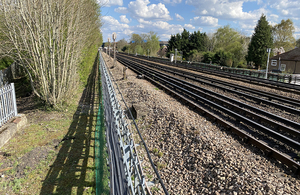Regulators promote competition across sectors in 2021 to 2022
Competition law in the UK is enforced by the Competition and Markets Authority (CMA), the nation’s primary competition authority, and, in certain sectors, by the relevant regulators.
In order for the regime to work effectively, there are rules on how the CMA and the sector regulators work together, which are known as the ‘concurrency’ arrangements.
Sectors covered by these arrangements account for approximately 25% of UK GDP and include services that most people use every day, such as communications, energy and water. This year’s report is issued against the background of increasing concerns about the cost of living, following the economic shocks caused by the global Covid-19 pandemic and the invasion of Ukraine.
The report outlines how the CMA and other regulators have been working to promote competition and improve their collective ability to enforce the law. It also considers new challenges, like shortages and shipping bottlenecks, which have emerged over the past year as the global economy recovered from the effects of the Covid-19 pandemic.
Highlights of the 2021 to 2022 report include:
- 5 cases were brought to a close, including the PSR’s first infringement decision which led to fines totalling more than £33 million
- 3 investigations – led by the CMA, Ofgem and Ofwat – resulted in firms signing formal commitments to improve their practices
- 4 new investigations were launched –in the digital advertising, electric vehicle charging and financial services sectors
The report also shows how the concurrency arrangements allow the regulators to help each other on a range of matters, including technical advice on specific markets and procedural guidance in competition investigations.
Andrea Coscelli, CMA Chief Executive, said:
This year, as we began to recover from the impacts of Covid-19, we also faced new challenges. The energy crisis and the invasion of Ukraine shook the world and have contributed to a sharp rise in the cost of living.
During difficult times, effective cooperation between authorities is especially important to help ensure that essential services are working well for the millions of people who depend on them.
By promoting healthy and competitive markets, we can help make sure households benefit from fair prices, good choice and quality services.
I’m pleased with the positive outcomes our joined-up approach has brought this year – and I’m confident that the UK’s competition authorities will continue to help people get a fair deal.
Read the Annual Concurrency Report 2022.
- The sector regulators involved in the concurrency arrangements alongside the CMA are: Civil Aviation Authority (CAA), Office of Communications (Ofcom), Gas and Electricity Markets Authority (Ofgem), Financial Conduct Authority (FCA), Payment Systems Regulator (PSR), NHS Improvement (NHSI), Office of Rail and Road (ORR), Water Services Regulation Authority (Ofwat) and Northern Ireland Authority for Utility Regulation (NIAUR).
- For media enquiries, contact the CMA press office on 020 3738 6460 or press@cma.gov.uk.


